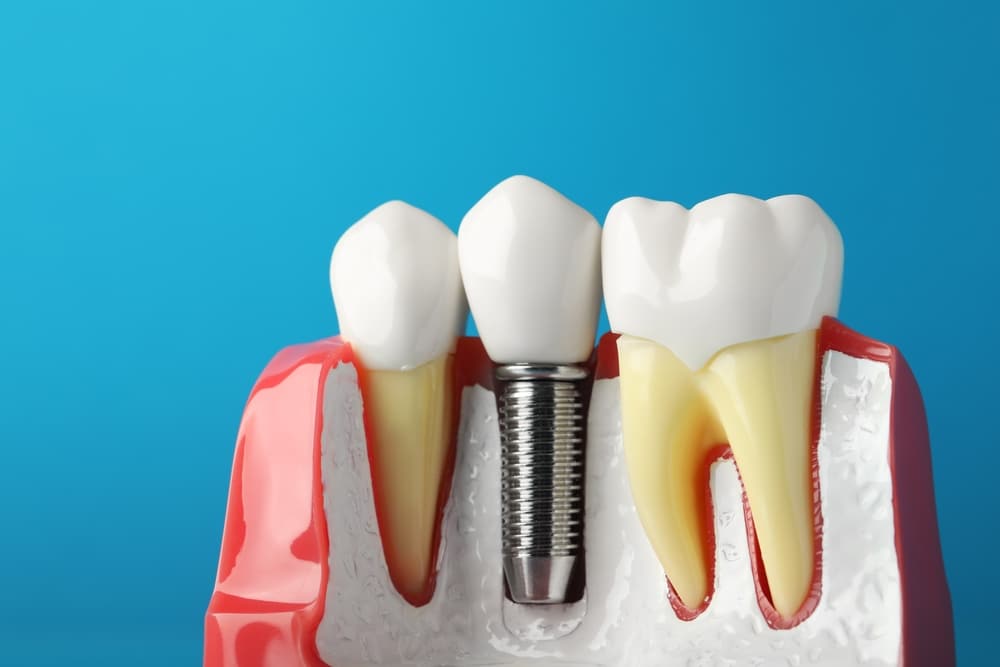Dental Implants vs Dentures: Which Is Right for You?
Tooth loss affects more than just appearance—it can hinder eating, speaking, and overall confidence. Thankfully, today’s dental innovations offer reliable solutions. This in-depth guide explores Dental Implants vs Dentures, providing the knowledge you need to choose the best option for your oral health and lifestyle.
Understanding Dental Implants
Dental implants are advanced prosthetic devices designed to replace missing teeth. They consist of titanium posts surgically inserted into the jawbone, acting as artificial tooth roots. Over time, these posts fuse with the bone through a process called osseointegration, providing a stable foundation for replacement teeth such as crowns, bridges, or dentures. This integration ensures that the implants function and feel like natural teeth, restoring both aesthetics and functionality to the patient’s smile.
Advantages of Dental Implants:
Longevity and Durability: Dental implants are renowned for their durability. With proper care and maintenance, they can last for decades, often outlasting other dental restoration methods. The titanium material is biocompatible, meaning it’s accepted by the body and integrates seamlessly with the jawbone, reducing the risk of rejection. This longevity makes implants a cost-effective solution in the long term.
Bone Preservation: One of the significant benefits of dental implants is their ability to preserve jawbone density. When a tooth is lost, the underlying bone can deteriorate over time due to lack of stimulation. Implants mimic natural tooth roots, stimulating the bone and preventing resorption. This preservation maintains facial structure and prevents the sunken appearance often associated with tooth loss.
Stability and Functionality: Unlike traditional dentures, which can slip or cause discomfort, dental implants offer unparalleled stability. They allow patients to eat, speak, and smile confidently without the worry of movement or slippage. This stability enhances overall oral function and quality of life.
Aesthetic Appeal: Dental implants are designed to look and feel like natural teeth. They are customized to match the color, shape, and size of the patient’s existing teeth, ensuring a seamless and natural appearance. This aesthetic integration boosts self-confidence and provides a rejuvenated smile.
Considerations for Dental Implants:
Surgical Procedure: The placement of dental implants involves a surgical procedure. While generally safe, as with any surgery, there are inherent risks such as infection, nerve damage, or sinus complications. It’s essential for patients to consult with experienced dental professionals to assess their suitability for the procedure and to understand the associated risks.
Healing Time: Post-surgery, the healing process can vary among individuals. Osseointegration, where the implant fuses with the jawbone, typically takes several months. During this period, patients may need to follow specific care instructions and attend regular check-ups to ensure proper healing and implant integration.
Bone Density Requirements: Adequate jawbone density is crucial for the successful placement of dental implants. In cases where bone loss has occurred, procedures like bone grafting may be necessary to build up the bone before implant placement. A thorough evaluation, including imaging studies, will determine if additional procedures are required.
Cost Considerations: Dental implants can be more expensive upfront compared to other tooth replacement options. However, their durability and longevity often make them more cost-effective over time. It’s advisable for patients to discuss payment plans or insurance coverage options with their dental provider.
Exploring Dentures
Dentures are removable prosthetic devices designed to replace missing teeth and surrounding tissues. They come in two primary types:
-
Complete Dentures: Used when all teeth are missing.
-
Partial Dentures: Utilized when some natural teeth remain.
These appliances restore oral functionality and aesthetics, enabling individuals to eat, speak, and smile with confidence.
Advantages of Dentures:
Affordability: Dentures are generally more cost-effective upfront compared to other tooth replacement options like dental implants. This makes them accessible to a broader range of patients seeking to restore their smiles without significant financial burden.
Non-Invasive Procedure: Unlike dental implants, which require surgical intervention, dentures can be fitted without surgery. This non-invasive approach is particularly beneficial for individuals who may not be candidates for surgery due to medical conditions or personal preferences.
Quick Fabrication and Fitting: The process of creating and fitting dentures is relatively swift. Patients can often receive their dentures within a few weeks, allowing for a prompt restoration of oral function and appearance.
Improved Aesthetics and Functionality: Modern dentures are designed to closely mimic the appearance of natural teeth. They provide support to facial structures, preventing the sunken look that can occur with tooth loss, and help improve speech and chewing efficiency.
Considerations for Dentures:
Stability Issues: Traditional dentures may sometimes shift or slip, especially when eating or speaking. This can lead to discomfort and may require the use of adhesives to enhance stability. Over time, adjustments or relining may be necessary to maintain a proper fit.
Bone Loss Over Time: Dentures do not provide the same stimulation to the jawbone as natural teeth or dental implants. As a result, the underlying bone may gradually deteriorate, leading to changes in facial structure and denture fit. Regular dental check-ups are essential to monitor and manage this issue.
Maintenance Requirements: Proper care of dentures is crucial to ensure their longevity and oral health. They should be cleaned daily using appropriate cleaning solutions and stored properly when not in use. Neglecting maintenance can lead to plaque buildup, staining, and potential oral infections.
Adjustment Period: Adapting to new dentures can take time. Initially, patients may experience increased saliva production, minor irritation, or difficulty speaking and eating. However, with practice and minor adjustments, most individuals adapt successfully to their dentures.
Cost Comparison: Dental Implants vs Dentures
| Procedure | United Kingdom | Germany | Albania |
|---|---|---|---|
| Single Implant | €2,500 | €2,000 | €600–€900 |
| All-on-4 Implants | €10,000+ | €8,500+ | €3,000–€4,500 |
| Zirconia Crown | €800 | €700 | €200–€300 |
| Veneers (per tooth) | €900 | €800 | €250–€400 |
Source: European Dental Tourism Federation, 2024.
In Albania, dental implants are significantly more affordable. For instance, a single titanium implant with abutment and crown costs approximately €460, compared to €3,100 in the UK. Medical Tourism Co.+1Medical Tourism Co.+1
Functionality and Comfort
Dental implants provide better chewing strength and bite function. A study published in the Journal of Clinical Oral Implants Research found that implant users reported higher satisfaction in daily life.
Dentures, while functional, often require adhesive for stability. Over time, gum changes can lead to looseness, requiring re-fitting.
Bone Preservation
One major downside to dentures is that they do not preserve bone. Without stimulation, the jawbone shrinks over time.
Implants, however, fuse with bone and prevent this loss. According to Cleveland Clinic, implants can preserve jaw structure, helping maintain facial appearance.Excelentis+3academy.iti.org+3Wiley Online Library+3
Maintenance and Care
Dental Implants:
-
Brush and floss daily.
-
Visit the dentist regularly.
-
Use non-abrasive toothpaste.
Dentures:
-
Remove and soak overnight.
-
Clean with a soft brush and mild cleanser.
-
Avoid hot water, which can warp the material.
Aesthetics: What Looks Better?
Implants win in the appearance category. They are customized to match your natural teeth in shape and color.
Modern dentures also look good but can appear less natural, especially if poorly fitted.
Who Is a Good Candidate?
Dental Implants May Suit You If:
-
You seek a long-term solution.
-
You have sufficient jawbone density.
-
You’re comfortable with surgical procedures.
Dentures May Be Appropriate If:
-
You prefer a non-surgical option.
-
Budget constraints are a concern.
-
You require a quicker solution.
Your dentist may also recommend implant-supported dentures—a hybrid solution offering more stability than traditional dentures.
Final Verdict: Dental Implants vs. Dentures
Dental Implants are best if you want long-lasting, high-functioning teeth that look and feel natural. They are a solid investment in your health and self-esteem.
Dentures are a valid option if you’re on a budget or need a fast solution without surgery. They can improve your smile and confidence at a lower cost.
Always consult a dental professional to make the right choice for your needs and medical history.
Ready to restore your smile?
Contact the Albanian Health Agency for a free consultation.
We connect you with certified clinics offering top-rated dental implants and dentures at competitive prices.


